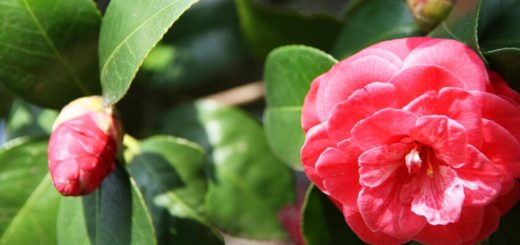Benefits of Sage: What is it used for and what is it good for?

Sage, which grows widely in the Aegean, Mediterranean and Marmara regions of our country, is a plant known as a panacea in the Middle Ages. Containing almost all of the B group vitamins, sage is rich in vitamins K, A and C. Sage plant, which has an antioxidant effect with the phenol compounds such as luteolin, diosmetin and pigenin it contains, is also rich in copper, iron, zinc, manganese, calcium and potassium minerals. It is a herbal source. Sage is an important plant that should be discussed with its benefits and harms.
Benefits of Sage
- It purifies the body from toxins.
- It improves stomach and digestive problems.
- It accelerates metabolism.
- It removes skin blemishes.
- It prevents bad cholesterol.
- It protects the body against cancer.
- It strengthens immunity.
- It is good for stress and fatigue.
- It strengthens muscle and bone development.
- It relieves fatigue.
- It has an anti-inflammatory effect.
- It is good for brain health.
- It balances blood sugar.
- It protects heart health.
- It relieves the effects of menopause.
- It is diuretic.
- It is good for sleep problems.
For the most accurate treatment methods and definitive results in health, be sure to consult a doctor who is an expert in his field. Our recommendations include temporary at-home herbal suggestions for mild ailments. It does not constitute a prescription. We wish you healthy days…
Purifies the Body from Toxins
Sage is a useful plant that contains high antioxidant minerals. Thanks to this plant, it is very easy to clean the toxins that tire the body. You can benefit from sage tea with its detox effect to clean the blood, veins and internal organs. It cleanses the body in a short time and helps you have a healthier body. It also has diuretic properties and can alleviate the effects of urinary tract infection.< /span>
Heals Stomach and Digestive Problems
It helps the digestive system work better. You can get help from sage tea to heal problems such as gas, heartburn, edema herbally. Sage tea can be consumed with the approval of a physician for herbal support in diseases such as diarrhea and gastritis.
Accelerates Metabolism
Sage tea has a feature such as stimulating the urinary tract and causing frequent urination. Thanks to this feature, your body will be stimulated and your metabolism will accelerate. Thanks to regular sage consumption, your body can start burning more energy.
Removes Skin Blemishes
You can start to correct skin problems thanks to sage, which has the power of cell repair and renewal. For this, it is necessary to apply sage on the skin and consume it as tea. With this tea, which allows the cells to be repaired in a short time, skin blemishes, sun spots, acne, acne, eczema and oily skin can be cleared. It is necessary to get doctor’s approval before applying it to the skin. It is definitely not recommended to apply to open wounds.
Prevents Bad Cholesterol
Experts recommend consuming sage regularly for 15 or 21 days. During this process, the level of bad cholesterol in the blood may decrease. If you are looking for a solution to lower bad cholesterol and feel better; You can also add sage consumption to your healthy living rules.
Protects the Body Against Cancer
Sage contains powerful antioxidants such as rosmarinic, quercetin and carnosol. Thanks to these substances, your body can be resistant to cancer. You can pay attention to sage consumption to prevent cancerous cells from settling and spreading in your body. Research on its beneficial effects on colon cancer continues.
Strengthens Immunity
Sage is rich in powerful antioxidants such as polyphenols and flavonoids. These antioxidants help reduce oxidative stress by fighting free radicals in the body. Oxidative stress can cause damage to cells and DNA and weaken the immune system. Antioxidants support the immune system to work more effectively by reducing the effects of free radicals.
Good for Stress and Depression
Nowadays, many people experience depression, stress and anxiety disorders. Sage tea is especially recommended to solve the attention deficit problem of students and busy workers. Sage is a tea that calms the nervous system. Thanks to this tea, you can feel better psychologically.
Limited studies on the Salvia lavandulifolia species, which grows in Southern France and Spain, show that it can alleviate the effects of Alzheimer; It is also known toincrease concentration and strengthen memory capacity
Strengthens Muscle and Bone Development
Sage contains vitamin K. Thanks to vitamin K, muscle and bone development can be supported. It is known that those who consume sage regularly protect it from muscle and bone diseases and rheumatic diseases. You can consume it to prevent serious problems such as osteoporosis and muscle pain. However, it is important to get doctor’s approval.
Relieves Fatigue
If you feel tired when the hustle and bustle of the whole day is over, you can consume sage. This herb will help relieve pain when consumed as tea. Since it has the effect of relieving fatigue and stress, its consumption is recommended before sleep.
Has an Anti-Inflammatory Effect
The oils and extracts of sage leaves contain some compounds that have anti-inflammatory properties. These includerosmarinic acid, carnosol and caffeic acid. Some laboratory studies suggest that sage exerts anti-inflammatory effects at the cellular level and targets some molecular pathways associated with inflammation.
With its anti-inflammatory effect, sage has anti-inflammatory or reducing properties. It has a soothing effect for inflammatory conditions such as sore throat and sunburn.
Good for Brain Health
Some small-scale studies have suggested that sniffing sage oil may improve mental performance and concentration. The aroma of sage has the potential to promote mental alertness.
Balances Blood Sugar
Some studies have shown that sage may reduce glucose absorption. This can help balance the insulin response, preventing rapid rises in blood sugar.
Protects Heart Health
Some studies have suggested that sage extracts may lower blood pressure. Low blood pressure is important for protecting heart health, but research on this subject is limited and more studies are needed.
Alleviates the Effects of Menopause
Sage can provide a relaxing effect when used as aromatherapy or sage tea. This may be helpful in dealing with stress, anxiety, or insomnia during menopause.
It is a diuretic
Sage has traditionally been used as a diuretic. Sage can stimulate the kidneys and increase urine production, thanks to some components it contains. Because of this feature, some people can consume sage as an anti-edema and diuretic.
Good for Sleeping Problems
Sage is traditionally known as an herb thought to have relaxing and calming properties. Drinking sage tea can reveal these relaxing effects, especially since it contains sage essential oils.
The essential oils in sage tea, especially one component, α-pinene, may have calming effects. Therefore, drinking sage tea may create a feeling of relaxation in some people, which may help with the transition to sleep.
Scientific Studies on the Benefits of Sage
Digestive system
Sage has been examined in many studies on digestive system problems. In particular, its gas relieving effect is scientifically supported. In a study, the effects of sage tea on stomach and intestinal gas were examined and it was observed that it reduced gas accumulation.
(Source: Mahboubi, M. (2013). Sage: A traditional healing herb. Journal of traditional and complementary medicine, 3(4), 221-226.)
Anti-inflammatory and Antioxidant Properties
Sage may have antioxidant and anti-inflammatory effects due to certain compounds it contains. One study examined the antioxidant effects of sage and stated that it could reduce cell damage by fighting free radicals.
(Source: Abu-Darwish, M. S., Cabral, C., Gonçalves, M. J., Cavaleiro, C., Cruz, M. T., & Efferth, T. (2013). Salvia leriifolia Benth. and Salvia officinalis L. Essential oils and their antifungal activity on Candida spp. Planta medica, 79(2), 142-148.)
Cognitive Functions
Some studies suggest that sage may positively affect cognitive functions. There is some evidence that it may help prevent or slow the progression of Alzheimer’s disease and other neurodegenerative diseases. However, more research is needed in this area.
(Source: Başer, K. H. C., Yıldırım, A. B., & Kurkcuoglu, M. (2016). Comparative Evaluation of Various Essential Oils of Salvia Species: Composition, Antioxidant, Antibacterial, and Antifungal Activities. BioMed Research International, 1-13.)
Diabetes
It is researched that sage may also have positive effects on diabetes. One study stated that sage may increase insulin secretion and regulate blood sugar levels. However, this area is not yet fully understood and more work is needed.
(Source: Kianbakht, S., & Abasi, B. (2013). Perennial Plant of Sage (Salvia officinalis L.) Effect on Its Blood Glucose Level. International Journal of Current Microbiology and Applied Sciences, 2(7), 222 -229.)
These studies show that sage may have various health benefits. However, it is important to consult a professional when adding any nutrients to your diet, depending on your health condition.
What are the benefits of sage for hair?
- It refreshes the hair follicles of men and women suffering from dandruff, it can prevent dandruff formation by nourishing the scalp.
- It protects the health of your hair cells and prevents your hair from falling . It strengthens and repairs the hair strands.
- If your hair has a dry and thin structure, it gives volumeto your hair
What are the benefits of sage for women?
Menstrual (Menstrual Cycle) Regulation
Sage may help regulate women’s menstrual cycle. Especially for women with irregular menstruation, consumption of sage may have positive effects on maintaining a regular menstrual cycle. However, more research is needed on this subject.
Menopause Period
Women in menopause may experience some discomfort due to hormonal changes. Sage can be considered a natural support against menopause symptoms. It may help relieve symptoms such as hot flashes, insomnia, and anxiety.
Antioxidant Effects
Thanks to the antioxidants it contains, sage can help women protect cells by fighting free radicals in their body. This may be effective in slowing the aging process and supporting skin health.
Urinary Tract Infections
Sage may have antibacterial properties against urinary tract infections. Urinary tract infections are a common health problem in women, and regular consumption of sage can help prevent and alleviate these infections.
Digestive Problems
Women, like other people, can experience digestive problems. Sage is known to have positive effects on the digestive system and thus may help women support digestive health.
It should not be forgotten that, like every herb and natural product, excessive consumption of sage may cause some side effects. It is recommended that women during pregnancy or breastfeeding consult their doctor before consuming sage tea. Additionally, it is important to consult an expert when using sage for medicinal purposes.
What is Sage?
Sage is a plant with the scientific name “Salvia officinalis”. This plant, which belongs to the mint family, is native to the Mediterranean region; However, it is grown worldwide as a garden plant and for medicinal purposes. Sage has long been used in various cultures for its medicinal and aromatic properties.
Sage, which likes warm and temperate climates, is a medicinal plant from the ballıbabagiller family. There are approximately 450-500 species of sage in the world. Sage is a shrub-like plant with flowers and does not shed its leaves in winter. The sage tree, which can grow between 30-75 centimeters, has a durable structure.
Sage leaves, which have a sharp odor, are grey-green in color. In some sage species, the leaves can also be variegated, purple and red. It generally reproduces spontaneously with dark brown and egg-shaped sage seeds, but if desired, sage can be propagated as a culture by stem cuttings.
The leaves of the medicinal sage variety contain a volatile fatty acid called oleum salisae. Sage prepared with medicinal sage is not grown much in our country. Sage, which is similar to medicinal sage, is consumed as Anatolian sage in our country. In addition to being consumed as tea, Anatolian sage is also used as a spice in dishes in some regions.
What is sage used for?
- Sage herb, which is generally an indispensable source of herbal healing during the cold winter months, is also a plant used by those who suffer frommigraine and headache. You can relieve your pain by placing a clean cloth dipped in hot sage tea on your forehead and making a compress.
- If you are experiencing stomach cramps and gas problems, sage can help eliminate your digestive problems.
- Sage, which is frequently used in coldswith its expectorant feature, increases body temperature, causes sweating and can support the removal of toxins from the body.
- You can cleanse your sinuses and lungs by preparing steam with sage. For this reason, it has breathtaking features
- Cold sage may have positive effects in the treatment of diarrhea.
What is Sage Good for?
Sage, which can be used both as powder and as dried whole leaves, has a unique, easy-to-drink, pleasant taste. So, what is sage good for?
- The benefits of sage are also discussed by İbrahim Saraçoğlu. Saraçoğlu states that sage is especially good for pharyngitis, sore throat and tonsillitis that occur in colds such as colds and flu.
- Sage mask, which is good for oily hair problems, scalp dandruff and scalp infections, prevents hair from turning white.
- Is sage good for cough? Due to its detoxifying effect, it may also have a therapeutic effect on upper respiratory tract infections such as bronchitis, asthma and cough.
- Sage, which is good for urinary tract infections, can cleanse the liver and ensure the functioning of the gallbladder.
- You can consume sage to relieve complaints that occur during menopause. It may be preferred for side effects such as mood swings and sweating.
- Sage has a balancing effect on sugar levels in diabetic patients. The plant, which has antihyperglycemic properties, reduces blood glucose levels by preventing the release of glucose stored in the liver. However, it is necessary to get doctor’s approval.
How to Brew Sage?
You can use fresh, dried or ready-made tea bags to prepare sage. Reminding that you should not consume more than 2 cups of sage a day, let’s move on to the recipe:
Materials:
- 1 tablespoon dried sage
- 1 glass of drinking water
Preparation of:
- Boil the water.
- Transfer the boiling water to a glass of your choice.
- Add dried sage into the water.
- Cover the glass and let it brew for 5 to 7 minutes.
- If you wish, you can sweeten it with 1 slice of lemon or honey.
Note: If you increase this time, sage may lose its beneficial properties and its taste will become bitter.
Another alternative if you are going to brew it with sage leaves:
Materials:
- 5 – 6 leaves of sage
- 1 glass of drinking water
Preparation of:
- Add the sage leaves into the french press if available or into any cup or mug.
- Add boiled water.
- Brew for 5 minutes and strain the leaves.
Ready-made tea bags are also a very practical method. You can add one of these tea bags to your glass with hot water and remove the bag after 5 minutes.
Harms and Side Effects of Sage
- The thujone substance contained in the sage plant is a highly toxic substance. That’s why drinking sage tea may cause heart palpitations as a side effect in some people.
- So, Does sage cause miscarriage?Some of the phenol compounds found in sage may cause a threat of miscarriage in pregnant women. It is recommended that pregnant women do not drink sage tea without consulting their doctor.
- So, Does sage increase blood pressure?Too much consumption of sage may cause stomach problems and increase blood pressure.
- High sage consumption may trigger epileptic seizures.
- Sage has a reducing effect on the milk secretion capacity of breastfeeding mothers. Therefore, it is important for breastfeeding women not to consume sage without consulting their doctor.
- Sage, which contains intense phenol compounds, is an allergenic plant due to its properties. Excessive consumption may cause allergies.
- Regular and excessive consumption of sage may reduce sperm count in men.
Consult your doctor for the most accurate information and healthy results.
Does Sage Help You Lose Weight?
Sage leaf, which has satiating properties with its digestive effect on the stomach and intestinesaccelerates metabolism and increases fat burning in the body. Sage, which helps you lose weight with these properties, also plays an active role in burning fat, especially in the waist area, by removing toxins from the body.
Sage, which also plays a role in balancing blood glucose levels, is an effective herb in weight control. It can help lose weight as tea, as well as by adding it to soups and diet meals.
Drinking the same herbal tea in excessive amounts can tire the kidneys. Therefore, you should drink sage tea for 15 days and rest your stomach for a few days. It is not recommended to drink too much sage tea as it is a herbal tea that stimulates urination.
How and When to Consume Sage?
- If you feel stomach discomfort after eating,
- If you want to get rid of edema during the weight loss process,
- If you are experiencing headaches and joint pain,
- If you want to refresh your skin,
- If you want to protect your dental and oral health,
- To support the recovery of nerve cells,
- To strengthen eyesight,
- To facilitate urine output,
- You can drink sage tea to clear the infection.
In what situations should sage not be consumed?
- If pregnancy is suspected,
- If there is a confirmed pregnancy diagnosis,
- Before surgery,
- In chronic heart and blood pressure medication use,
- In child and baby nutrition,
- Using sage in case of dehydration can be dangerous for you.
Frequently Asked Questions About Sage
In what situations should sage not be consumed?
Sage may not be suitable for children under 6 years of age, pregnant women, breastfeeding mothers, and people using chronic medications. A doctor’s opinion should be obtained before use.
Does Sage Cause Menstruation?
The diuretic, anti-edema and detoxifying properties of sage come from its antioxidant components. It also relaxes the body as it relieves stress and anxious mood. The total of these benefits may cause an expectorant effect.
Can You Drink Sage Tea Every Day?
Sage can be consumed in its natural form, without added sugar, once or twice a day. However, when used continuously, it may cause side effects for some people. You can decide this by watching your own body structure.
When Does Sage Show Its Effect?
Sage tea shows its effect from the first moment it is drunk. Its calming, soothing and edema-relieving properties have been observed.
Get medical support for the most accurate information and healthy results. The information contained in our content does not constitute a prescription. We wish you healthy days…











